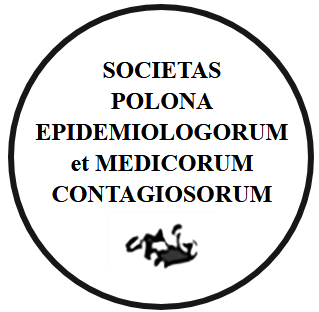RESEARCH PAPER
Application of whole genome sequencing to assess the relatedness of Salmonella Enteritidis strains isolated in the Silesian Voivodeship
1
Wojewódzka Stacja Sanitarno-Epidemiologiczna w Katowicach
Submission date: 2024-05-17
Final revision date: 2024-08-12
Acceptance date: 2024-08-30
Online publication date: 2024-09-20
Publication date: 2024-12-10
Corresponding author
Beata Irena Rozwadowska
Interdyscyplinarna Pracownia Diagnostyki Molekularnej, Wojewódzka Stacja Sanitarno-Epidemiologiczna w Katowicach, Raciborska 39, 40-074, Katowice, Polska
Interdyscyplinarna Pracownia Diagnostyki Molekularnej, Wojewódzka Stacja Sanitarno-Epidemiologiczna w Katowicach, Raciborska 39, 40-074, Katowice, Polska
Przegl Epidemiol 2024;78(3):326-332
KEYWORDS
TOPICS
ABSTRACT
Background: Gram-negative Salmonella bacilli are one of the most common bacterial causes of gastrointestinal infections. Well-selected and targeted microbiological diagnostics enable the detection and identification of the etiological agent of infection, however, standardized, routine and recommended methods do not always allow for the identification of the biological agent in an unambiguous manner. Next-generation sequencing has become an ideal tool for identifying microorganisms and tracking infection transmission in outbreaks for epidemiological purposes. Objective: The aim of the study was to assess the genomic relatedness of Salmonella Enteritidis strains using whole genome sequencing in the foodborne outbreak in August-September 2023 in the Silesian Voivodeship. Material and methods: The research material consisted of 11 strains of S. Enteritidis for which whole genome sequencing was performed using Illumina technology and the relationship between serotypes was assessed using bioinformatics tools. Results: The genomes of all S. Enteritidis isolates were assigned to HC2_53128, which may indicate a very close relationship between the strains. Conclusions: Whole genome sequencing enabled the assessment of the genomic relatedness of S. Enteritidis strains in the foodborne outbreak in August-September 2023 in the Silesian Voivodeship.
Share
RELATED ARTICLE
We process personal data collected when visiting the website. The function of obtaining information about users and their behavior is carried out by voluntarily entered information in forms and saving cookies in end devices. Data, including cookies, are used to provide services, improve the user experience and to analyze the traffic in accordance with the Privacy policy. Data are also collected and processed by Google Analytics tool (more).
You can change cookies settings in your browser. Restricted use of cookies in the browser configuration may affect some functionalities of the website.
You can change cookies settings in your browser. Restricted use of cookies in the browser configuration may affect some functionalities of the website.





